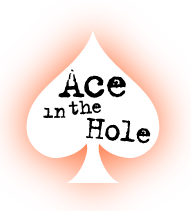“A QUIRKY JUNKYARD OWNER’S LIFE TRANSFORMS AS HE HELPS SAN FRANCISCO ARTISTS AND MAKERS ACHIEVE THEIR DREAMS”
For a decade, Bill ‘the Junkman’ Kennedy ran his father’s auto dismantling business like a dutiful son. Then one day an artist walked through the gates and everything changed.
With Bill at the helm, Ace Junkyard became an incubator space for creativity, innovation and culture over the next fifteen years. Artists had found a unique place to go when they needed inspiration, materials or simply an accepting ear to hear their crazy ideas. Maker and artist Liam McNamara says, “If you’re trying to do something edgy, and you wanna work with fire and you want danger to be an element in your artwork…there’s not really a place for it.” But Ace Junkyard was the place for it, and Bill the Junkman allowed those experiments to happen there. Events like the Power Tool Drag Races and the Cyclecide Bike Rodeo are some examples that got their start here. Each of these events have gone on to become internationally renowned events.
The community, in turn, helped Bill realize the richness and beauty of a life he never knew. They catalyzed his metamorphosis into a fuller and happier version of himself, also known as his alter ego, Belinda – a girl who likes to have fun, has purple hair and wears dresses. Bill’s biological family would never understand this side of his identity, but he was completely accepted in all his various shapes and forms by his junkyard family.
Alas, the age of Bill ‘the patron saint’ and his artists/makers came to an end. The landlady wanted to sell the property for a profit. She didn’t have the time, patience or understanding to foster creative misfits on her land, so she evicted them. A legal battle ensued, but “the landlady always wins” as Bill says, and that is what happened. Now, 6 years later, Bill is still unemployed, a few years older, and for the most part, estranged from his family. Many artists lost a major resource for materials, community, and inspiration with the closure of the yard. However, Bill’s legacy lives on through the artists as they go forth to create new arts spaces and engage local communities.
Economic turnover and gentrification have fueled changes like this across the country. Yet ironically, innovation and exploration are at the heart of diversity and social progress of a society. Without places like Ace, how can we expect to move beyond what we know? Ace in the Hole invites viewers to think about the cost of rapid economic progress and the impact on our communities, culture and social diversity, and how we can work together as a society to address these issues.

